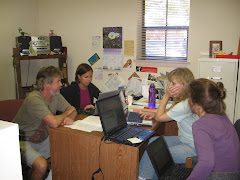It is initially the very title of Donald Finkel’s book, How to teach with your mouth shut, which attracts one’s attention. The contents, I am discovering, stir considerable debate. Last year, we formed a faculty group to explore reducing the amount of lecturing in our classes: “I talk too much,” one of colleagues said, launching the movement; “I want to talk less.” So we began by reading and discussing Finkel’s book and the exchanges have been lively. In my Language Teaching Practicum, we have been reading a couple of key chapters (Let the students do the talking and Refuse to teach) and discussing possible applications to language education.
In addition to an equally lively debate, there was, to say the least, a certain amount of skepticism. In general terms, students don’t like the idea of an instructor who abnegates so much authority, leaves too much decision-making to the students, sits down on the job. In more specific terms, they see the language teacher as responsible for providing input, especially to beginning level students.
Then something interesting happened. As we began to watch recordings of my students’ lessons in peer coaching sessions, we came across instructional problems to solve, activities and techniques to vary or improve.
And repeatedly, the response was for the teacher to talk less, to do less, to get out of the way, to keep her mouth shut.
In one case, we thought that the teacher might step aside and let students do the writing on the board. In another, that the teacher might sit down and let students take centre stage. In another, that the teacher should not hover over learners in small groups, but find a way to slip completely into the background and allow them to struggle to express themselves without the supervision and prompting which they quite possibly find stifling.
I have written in a separate post about Jose Antonio Bowen and the Teaching Naked concept. In one sense, the clothing items the teacher discards are visual and technological: Bowen wants us to stop hiding behind Powerpoint slides and other devices and engage students directly. Here – and possibly the next step – we are looking at the shedding of verbal outfits: becoming observers and listeners, sitting rather than standing.
I am tempted to connect the naked teaching with one’s mouth closed with the Buddhist idea of nirvana, when the self is snuffed out and the cycle of birth, death, rebirth once and for all interrupted. When the teacher lowers her own flame, she becomes the pilot light, just big enough to ignite the main blaze. If this sounds a little extreme, perhaps a suitable modification lies in Herbert Kohl’s notion of the suspension of the ego, which he discusses in chapter 11 of his Growing Minds (Harper Torchbooks, 1988). Kohl calls on teachers to separate their ego, their self-esteem, from their students and lessons. By quieting their own need to succeed, to be totally in charge, they give themselves the time and space to observe their learners and identify relevant interests, learning styles & strategies, preferences for certain activities and materials, and so forth. By keeping quiet, we hear the students’ needs and urges and ideas and opinions. Kohl provides several instances of lessons which went awry, but were rescued when the teacher didn’t take it personally, but reflected quickly on the new circumstances and adjusted accordingly.
An educator’s ego, however, is not always to be suspended. Outside the classroom, there are other considerations. In his collection of essays, I won’t learn from you, Kohl describes the idea of “creative maladjustment,” which for him had its origins in a speech given by Martin Luther King at U.C. Berkeley in May, 1958. I quote at length (for one thing, MLK is not a speaker one should ever abbreviate):
Modern psychology has a word that is probably used more than any other word. It is the word “maladjusted.” Now we all should seek to live a well-adjusted life in order to avoid neurotic and schizophrenic personalities. But there are some things within our social order to which I am proud to be maladjusted and to which I call upon you to be maladjusted. I never intend to adjust myself to segregation and discrimination. I never intend to adjust myself to mob rule. I never intend to adjust myself to the tragic effects of the methods of physical violence and to tragic militarism. I call upon you to be maladjusted to such things.
[From: I have a dream: writing and speeches that changed the world, Ed. James M. Washington, New York: Harper Collins, 1992, page 33.]
Kohl proposes that in the same way, we should insist on remaining maladjusted to any form of inequity, injustice or just plain nonsense in education: “creative maladjustment consists of breaking social patterns that are morally reprehensible, taking conscious control of one’s place in the environment, and readjusting the world one lives in based on personal integrity and honesty . . .” (page 130). Some of these acts of maladjustment will be minor, almost daily occurrences; others will be more significance assertions of will, requiring “determination, faith that people can be wonderful, conscious planning, and an unshakable sense of humor” (page 130). He describes teachers who challenge preconceptions and insist on placing the best interests of their students above all else as “nonprofessional with joy.”
Putting the two together, we have a picture of a restrained teacher in the classroom, respecting students, observing them carefully to pick up on ways to help them, and giving them the time and space to find their own voice. And a vocal campaigner outside the classroom, patiently and tactically working the system, engaging and cajoling administrators and other stakeholders to get the very best in resources, the most positive of learning environments for students.





